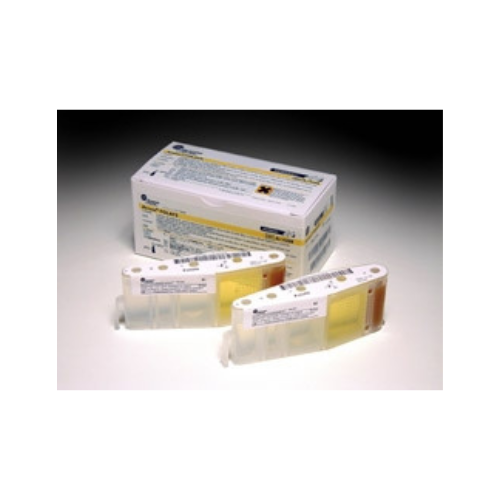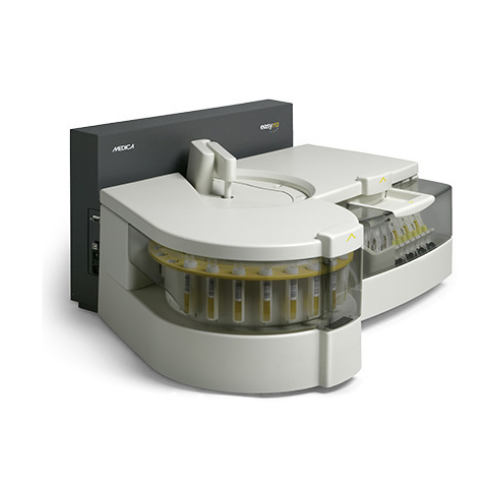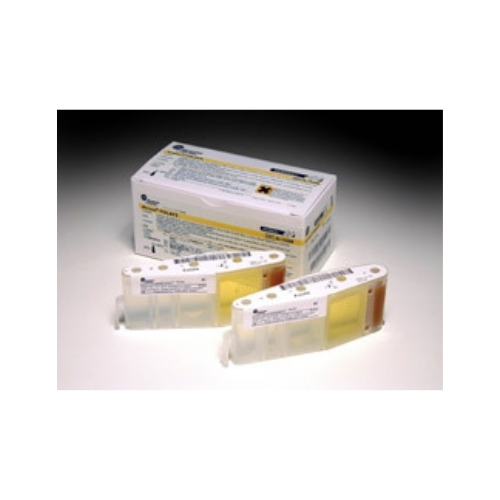For Business Use Only. Does Not Ship to Residential Addresses. For use inside an Analyzer, Sold Separately.
Beckman Coulter Access Total T3, 100 Determinations, 2 x 50 tests
Product Code: 33830
Manufacturer: Beckman Coulter
Shipping Weight: 10.00lbs (4.54kg)
Specifications
Brand: Access®
Manufacturer: Beckman Coulter
Country of Origin: United States
Application: Reagent
Number of Tests: 100 Tests
Storage Requirements: Requires Refrigeration
Test Name: Total Triiodothyronine (T3)
Test Type: Thyroid / Metabolic Assay
Intended Use
The Access Total T3 assay is a paramagnetic particle, chemiluminescent immunoassay for the quantitative determination of triiodothyronine levels in human serum and plasma using the Access Immunoassay Systems.
Summary and Explanation
The concentrations of thyroid hormones, and the degree of their biological effect, are controlled by the hypothalamo-hypophyseal-thyroid axis. Thyrotropin Releasing Hormone (TRH or TRF) is released by the hypothalamus in response to circulating concentrations of free thyroid hormones. TRH travels from the hypothalamus to the adenohypophysis (anterior pituitary) via a portal blood system where it initiates an intracellular cascade of events which result in the production and release of Thyroid Stimulating Hormone (hTSH or Thyrotropin). The target organ for hTSH is the thyroid gland where it binds its receptor and elicits its response via an adenylate cyclase second messenger system. The response of the thyroid gland to hTSH stimulation includes the synthesis, storage, secretion and metabolism of tetraiodo-thyronine (T4) and triiodothyronine (T3). More than 99% of the total concentration of T3 and T4 is bound by serum proteins, which is not available to elicit biological activity. It is only the free fraction (less than 1%) which is readily available to bind its receptor, and stimulate a response from the target organ or tissues.
In euthyroid individuals, only a small proportion (20%) of the total concentration of T3 in the systemic circulation (serum) comes from direct secretion from the thyroid gland proper. The remaining fraction of total T3 is derived from enzymatic monodeiodination of T4 to T3 by the peripheral tissues. The T3 molecule is the only thyroid hormone that appears to have any intrinsic biological activity, that is, the biological activity of T4 comes about only after monodeiodination to T3. The activity of these peripheral deiodinases is under strict control. This can be seen in developing hypothyroidism where conversion of T4 to T3 increases in a compensatory fashion to the developing hypo-thyroxinemia in an attempt to maintain normal concentrations of the biologically active T3. During long periods of stimulation of the thyroid gland by thyroid-stimulating immunoglobulins (Grave's disease), the thyroid gland will secrete large quantities of T3, which significantly increase the T3/T4 ratio when compared to the euthyroid state.
The clinical importance of total serum T3 determination is in the diagnosis of thyroid disorders. Elevated concentrations of T3 can be found in Grave's disease, and most other classical causes of hyperthyroidism. Decreased concentrations occur in primary hypothyroid diseases such as Hashimoto's thyroiditis and neonatal hypothyroidism or secondary hypothyroidism due to defects at the hypothalamo-hypophyseal level.











